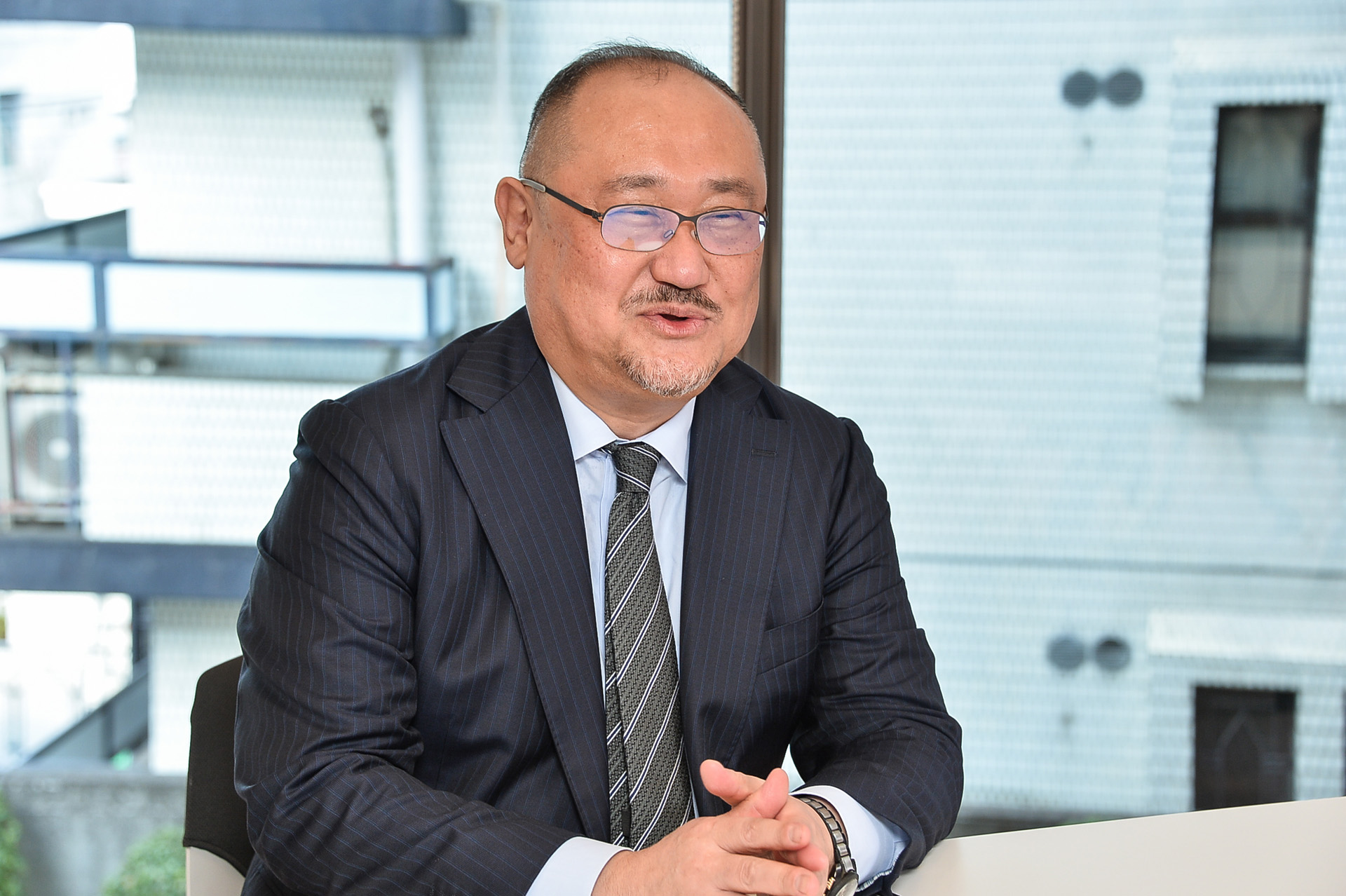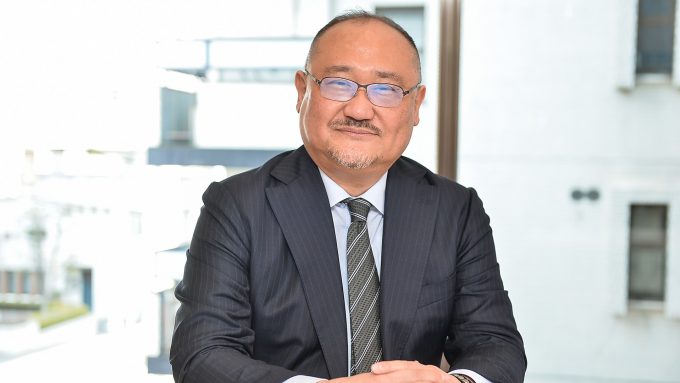WE GREW VANA’DIEL is a series of interviews with those who were involved in the development of FINAL FANTASY XI (FFXI), as well as guests from other companies. In this installment, we interviewed Hirokazu Hamamura, who served as the representative of the Famitsu Group until April 2020 and has been following FFXI at the forefront of gaming media. As a key figure in gaming media and an avid player himself, what were his views on FFXI? In this first part, Mr. Hamamura shared what he thought of FFXI when it launched, as well as how the game industry had reacted.

Senior Advisor for Digital Entertainment at KADOKAWA. He was involved in the game magazine "Famicon Tsushin" (Weekly Famitsu since 1995) from its first issue and served as its editor-in-chief from 1992 to 2002, after which he continued to lead the overall media side of things as Famitsu Group Representative until 2020. Mr. Hamamura has produced many publications on FFXI, including "Vana'diel Tsushin," and is also known as an avid FFXI player who adventures in Vana'diel with his son.
Mr. Hamamura's first encounter with online games
To start us off, when did you first become aware of MMORPGs?
- Hamamura
That would be when Ultima Online* emerged. After being told the game was played in a virtual world on the internet, I gave it a try and was left dumbfounded by the experience. It was stunning to me at the time like, “How is something like this even possible?”
* Ultima Online is a game released in 1997 widely considered to be a pioneer of the MMORPG genre. What was it about MMORPGs that surprised you in particular?
- Hamamura
It was how players played or spent their time in MMORPGs in fundamentally different ways compared to games we’d seen so far. For example, conventional RPGs also featured game elements like combat and completing quests, but in Ultima Online, there were also a great deal of players who logged in just to chat. Basically, rather than playing towards a specific goal, the players were leading their lives in a virtual world. Based on what I saw, I had a hunch that the way games were played might drastically change in the future.
I can see why, considering Ultima Online offers a whole different level of freedom even compared to other MMORPGs.
- Hamamura
It also astonished me how, depending on the content, MMORPGs could keep players engaged for an indefinite amount of time. At the same time, I was concerned that if games like that became the norm, packaged games would be discontinued. There was a lot for me to contemplate, such as how these games would inevitably be featured in Weekly Famitsu and how we should interact with them as part of the media.
In the midst of all that, FFXI was announced as Square's (now Square Enix) first MMORPG at the Square Millennium Event in 2000. Do you remember anything from back then?
- Hamamura
Yes, of course. Square simultaneously announced three numbered titles for the FF series, which turned out to be completely different from each other. FFIX strongly retains the classic FF flavor and was created by Mr. Sakaguchi’s* studio in Honolulu, Hawaii. FFX is a title that ushered in a completely new generation within the FF series. And FFXI was the first full-fledged MMORPG for consoles. Moreover, the PlayOnline platform launched alongside FFXI was also impressive.
* Hironobu Sakaguchi, one of the founders of the FF series. What were your initial impressions of PlayOnline?
- Hamamura
Before the Square Millennium Event, Mr. Sakaguchi visited the Famitsu editorial department to explain it to us in person. When he told me, “We want to make it so publications like Weekly Famitsu and Weekly Shonen Jump can be read on PlayOnline,” at first I thought, “What on earth is this guy talking about?” (laughs)
At the time, creating an internet portal for various content was an unprecedented project.
- Hamamura
In his presentation, Mr. Sakaguchi expressed a grand vision of changing how people interact with entertainment. Given Square’s impressive momentum at the time, we were excited that their vision might be achieved and wanted to be included in the future they spoke of, so we gave it real consideration.
A hopeful but anxious first impression
Next, please tell us more about your initial impressions of FFXI when it was first announced.
- Hamamura
FFXI was announced as a full-fledged MMORPG for consoles, something that had never been done before, so I was very hopeful but also just as anxious. Prior to then, console users could play a game as soon as they purchased the package, but that wasn’t the case with FFXI. The PlayStation 2, the target platform, couldn’t connect to the internet as-is and required separate purchases of peripheral devices, such as the PlayStation BB Unit and a modem. Not only that, but anyone signing a new contract with an internet provider would’ve had to wait about two weeks before they could actually play the game.
I’m sure many of the people who were trying to play FFXI at the time were new to the internet itself.
- Hamamura
It was a similar situation with monthly billing; services with subscription-based business models like Kindle Unlimited and Amazon Prime are commonplace nowadays, but they weren’t back then. Some people were surprised like, “I bought the packaged game, why do I have to keep paying every month?” Besides, there were a lot of problems that came with internet access. In my case, I had time to play games and was surrounded by people who were familiar with the internet who could help me troubleshoot, but not everyone was as fortunate I was. As such, I was worried about whether the average fan would be able to play FFXI.
There definitely was a high barrier to entry that would be unthinkable today.
- Hamamura
To put it another way, the very first FFXI players were formidable people who had overcome such odds. They were all diehard players who truly loved games from the bottom of their hearts, and with people like that coming together, the FFXI community was teeming with an overwhelming passion.
Was there anything else about the early days of FFXI that left a strong impression?
- Hamamura
There were a lot of hurdles to overcome even after you managed to log into the game, which also had me quite impressed. Forming a well-balanced leveling party with six members was bound to take 30 minutes or longer. After going through all the trouble of putting a party together, you’d want to spend at least three hours leveling, so a gameplay session was typically three to five hours. Thinking about it now, it’s an astounding game in many ways.
It was certainly like that when playing in parties.
- Hamamura
The most amazing part was that even with myriad hurdles, the game was incredibly fun. Accomplishing something in FFXI provided a completely different level of joy compared to older packaged games, so much that your preceding struggles simply paled in comparison. In a way, even the hardships added to the enjoyment.

I agree, even the difficulty felt like part of what made FFXI fun.
- Hamamura
And as you keep playing, you start to feel as if a part of you exists and lives in the virtual world of Vana’diel. Anytime you logged in, there was always someone there, and a plethora of activities aside from combat and leveling up, such as chatting with friends, crafting, and fishing. It was a playstyle that was completely different compared to those of conventional offline games, one that was absolutely sensational for players at the time.
FFXI’s impact on the game industry and Mr. Hamamura
Could you share your thoughts on what sort of impact FFXI has had on the game industry?
- Hamamura
The emergence of games-as-a-service, or “never-ending games,” was particularly influential. Prior to their conception, game developers understood that everyone had a set amount of time they could play games per day, so they would estimate, “If players play the game at this pace and complete it after so-and-so days, then they’d probably be willing to buy the next game around this time,” and that was the cycle by which they sold their games. But with MMORPGs, which regularly add new features through version updates, players who get hooked won’t move on to the “next game.”
That’s something game developers still wrestle with today.
- Hamamura
FFXI costs around $13 (USD) per month and amounts to about $156 per year. Which means that after purchasing the base game, you can play the game for a year for what it would cost to purchase three or four games. I imagine game developers at the time were worried that if this sort of business model were to become the norm, many players would stop buying packaged games.
What did you think of the industry’s response to FFXI’s emergence?
- Hamamura
At the time, people from various industries were bombarding me with questions like, "What do you think of FFXI?” "Will it change how games are played?” and "How do you think games will change in the future?” It was to the point where even people outside of the game industry were frequently asking me about the game, so you can imagine that when I had business dinners with game developers, for example, FFXI was all we would talk about.
What were their reactions like, exactly?
- Hamamura
Reactions seemed polarized between those who were neck deep in FFXI and those who kept their distance. The people who kept their distance were like, “I can’t play right now, since I’d get hooked…” but I’m sure even they had various thoughts running through their minds. It was obvious that MMORPGs and other online games were about to change the future of the game industry, and they’d been outpaced by another company with such a high-quality title. They must’ve been frustrated, and I’m sure they were desperately thinking, "How can we surpass FFXI?" or "Can we take a different approach to MMORPGs?”
How did people other than game developers react to FFXI’s release, such as Weekly Famitsu’s editorial department?
- Hamamura
Everyone was hooked to a remarkable degree. After finishing their work and submitting their manuscripts, they’d immediately log in to FFXI from our office and play until morning, take a short nap, then work on their interviews and writing for the next day. Many of our editors went through a cycle like that on repeat.
I imagine there’d been other instances where staff members got hooked on a high-profile title that just released, but was there anything that stood out with FFXI?
- Hamamura
What made FFXI so different from previous games was how you don’t always control the gameplay. In older games, you could start or stop playing whenever you wanted. But in FFXI, you log in and find your linkshell buddies and friends online, and if they ask you to join them for leveling up or a quest, you end up helping them. You were initially going to play for an hour, but as you chat among yourselves like, “Man, this item just won’t drop!” you end up playing late into the night. You get more and more absorbed in the game, and before you know it, all of your free time has been taken up by FFXI.
I’d like to hear about your own experiences as a player as well. When did you start playing FFXI?
- Hamamura
I started during the official launch. I could’ve played during the beta test, but I was so interested in FFXI that I didn’t want to play until the full version was released.
Aside from that, when you’re involved in the media, you often get exposed to spoilers that you didn’t want to see. So although it was completely selfish of me, I did my best to not get involved with FFXI as part of my job, and played it purely as just another player. I’m sure if you wanted to, you could’ve gathered your editorial staff and established a community within a certain World; did you do anything like that?
- Hamamura
I actually did the opposite. Aside from a few exceptions, I started the game with a clean slate and no existing relationships. I was also invited to a linkshell where I had no real-life acquaintances, so the members at the time weren’t aware that I worked for Famitsu. It wasn’t until much later that I revealed my identity to everyone in the linkshell.
What was it like to enjoy FFXI without being tied down by real-life relationships?
- Hamamura
It was really refreshing to hear the players’ raw feedback. For example, our linkshell always brings up all kinds of games, saying things like, "That game has a lot of bugs," or "That manufacturer hasn't been doing well lately.” My role in the media is to promote the game industry, so I try not to have a negative perception on those kinds of things, much less talk about the industry in public. I’d respond, “Oh, is that so?” while thinking, “Man, everyone else is free to speak their mind.” (laughs)
Ah, so you were strictly a listener in those conversations.
- Hamamura
Well, more often than not, I’d end up defending the developers. I’d say things like, "It must’ve been difficult to work on such a large project,” or "It's really hard to check for bugs, you know.” I was a complete goody two-shoes in Vana'diel. (laughs)
* Part 2 will be released on September 14, 2022.




